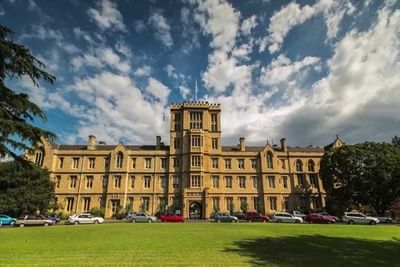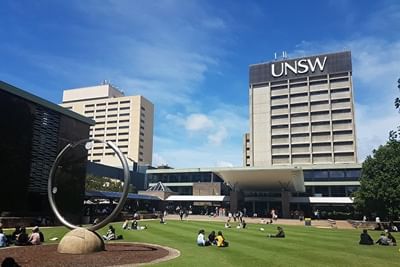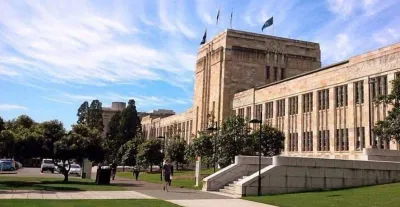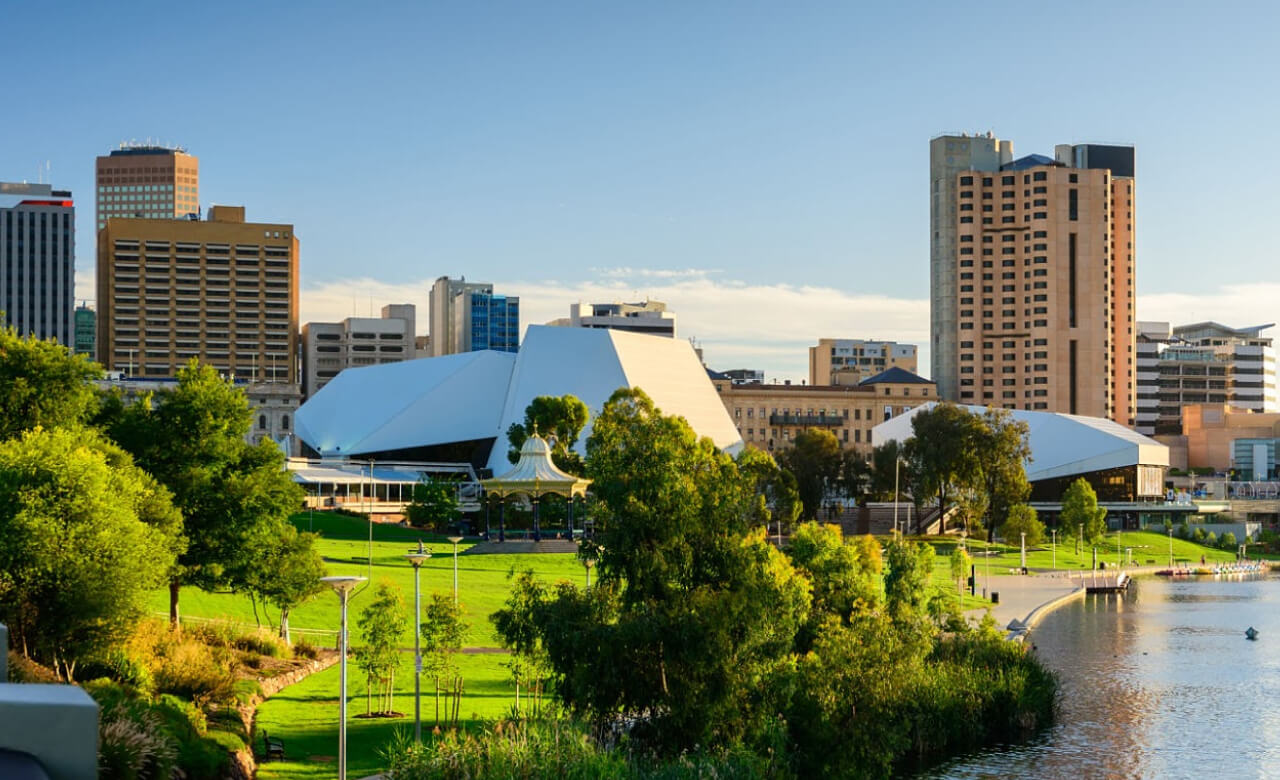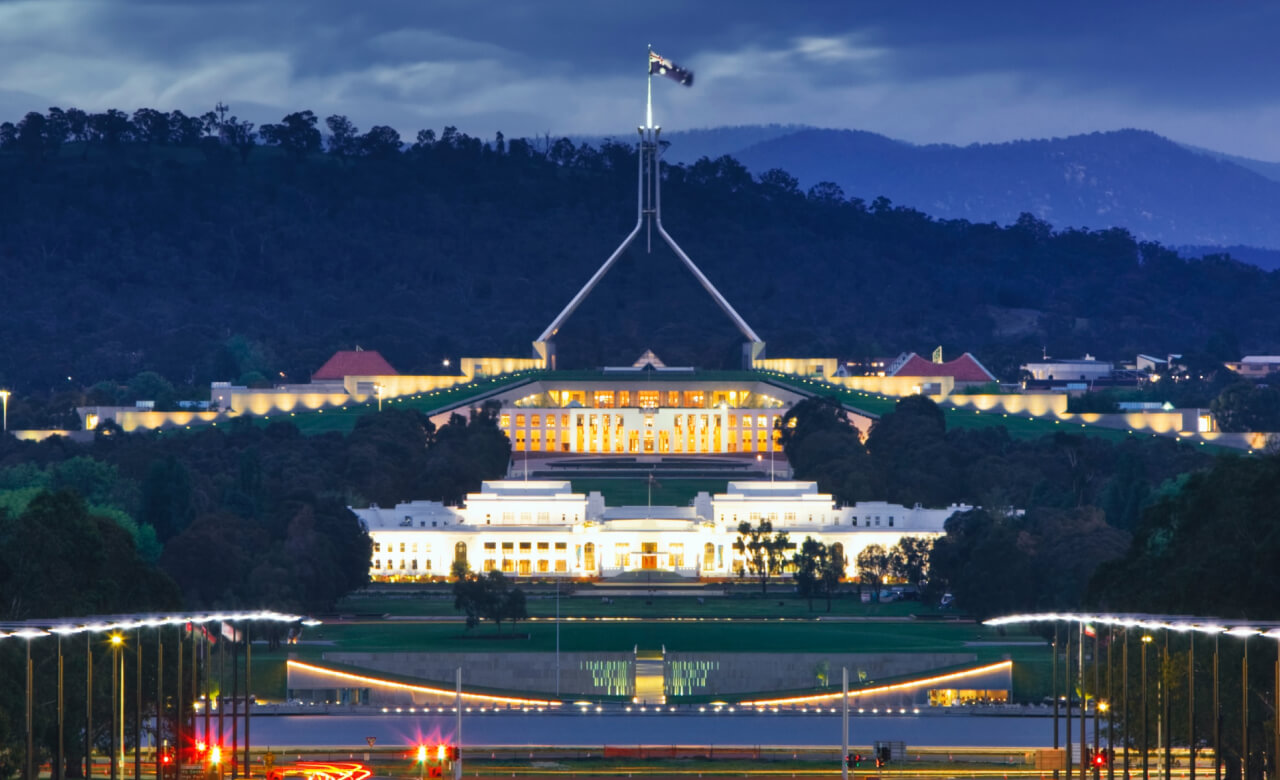Study in Australia

Australia is one of the top five study abroad destinations across the globe for overseas students. Not only is the country highly recognised for its scenic landscapes and sandy beaches, but it also houses some of the world's most prestigious colleges, making it a popular choice for international students. Every year, around 4,22,095 students enrol to study in Australia, and they are provided with countless opportunities and globally recognised degrees that are acknowledged by the top businesses and organisations. Students who graduate from Australian universities find that they are competitive in the job market owing to the advanced courses and degrees.
Education System in Australia
International students who wish to study in Australia have their rights protected by the Education Services for Overseas Students (ESOS) framework. The academic year in Australia differs according to the type of study you are pursuing. Start dates and semester lengths vary per course and institution. Primary, secondary, and tertiary education are all available in Australia.
How It Works
- Higher education (including universities and colleges) and vocational education and training (VET) are both included in tertiary education.
- English is Australia's official language and the primary language of teaching in the educational system. Many schools provide bilingual or multilingual programmes.
- The Australian Qualifications Framework (AQF) was founded in 1995 and is a national framework that encompasses tertiary education qualifications.
- The AQF is divided into ten levels and connects school, vocational, and university education credentials into a single national system. As long as you meet student visa criteria, you can simply transition from one level of study to the next and from one university to another.
Why Study in Australia?
Australia has been amongst the top destinations for international students. The pandemic brought about the closing of the Australian borders for quite a while resulting in a massive shift to other countries. However, with the opening of the borders, there has been a heavy inflow of overseas students to Australian institutions. Here are some of the top reasons why international students prefer to study abroad in Australia -
Globally Recognized Qualifications: Australian degrees are recognised worldwide, and the institutions are well-known for their research and training approaches. Their academic quality is recognised around the globe, with seven Australian universities continuously ranking in the top 100 of the QS World Ranking and Times Higher Education Rankings.
Quality of Education: It is one of the most popular places for students from overseas due to the high level of education, the wide range of courses available, and post-study employment prospects. When you choose to study in Australia, you will be able to select from 22,000 courses offered by 1,100 colleges and institutes, get globally recognised degrees, explore numerous scholarship options, and learn from the top instructors in the world.
Safety: Australia is a safe and hospitable destination to live and study, frequently emerging as one of the world's safest countries. It is also safe due to high Covid vaccination rates among the local population and efficient pandemic management.
Work Opportunities: While studying in Australia, international students are permitted to work up to 20 hours a week. This is an excellent alternative for individuals who wish to earn money to help with living expenses while studying, as well as for those who want to obtain job experience in their subject of interest while studying.
Available Courses To Study
More often than not, several international students who plan to pursue university courses in Australia, look for employment opportunities upon graduation. Most of the courses offered in Australia are well-taught with great exposure to both theoretical and practical knowledge. Students also work on projects, assignments, models, and thesis to show evidence of a thorough understanding of the particular subject. If you’re planning to study in Australia, here are some courses that are in high demand and will, therefore, increase your employment prospects.
Finances
Cost Of Education in Australia
Tuition fees in Australia largely vary based on several factors such as the chosen university, the course intricacies, level of study, and whether you’ve applied for scholarships to study in Australia. The costs for several types of degrees for international students in Australia are shown below. Applicants should be aware that these prices do not cover expensive courses like veterinary or medical costs.
- Undergraduate Bachelor Degree - AUD 20,000 - 45,000
- Postgraduate Master’s Degree - AUD 22,000 - 50,000
- Doctoral Degree - AUD 18,000 - 42,000
- Vocational Education and Training - AUD 4,000 - 22,000
- English language studies - AUD 300 per week
Source: studyinaustralia.gov.au
Here is the cost of courses from a few of the top Australian Universities for international students -
|
University |
BE/BTech First Year Tuition Fee |
MS First Year Tuition Fee |
MBA First Year Tuition Fee |
|
The University of Melbourne |
AUD 43,520 |
AUD 37,760 - 41,536 |
AUD 89,500 |
|
Australian National University (ANU) |
AUD 48,384 |
AUD 48,384 - 50,400 |
AUD 50,400 |
|
The University of Sydney |
AUD 39,240 - 48,500 |
AUD 37,500 - 49,000 |
AUD 50,000 - 67,000 |
|
The University of Queensland (UQ) |
AUD 45,120 |
AUD 41,040 - 47,120 |
AUD 80,808 |
Cost Of Living in Australia
Australia has an excellent standard of living for overseas students. However, especially in large Australian cities like Melbourne, Sydney, and Adelaide, this leads to a greater cost of living. Again, the cost of living in Australia depends on factors such as the location of your student accommodation, the type of student housing, your personal lifestyle, and more. A single student living off-campus can expect to pay between AUD480 and AUD1760 per month.
Other monthly expenses include -
|
Particulars |
Expenses |
|
Rent |
$480-$1760 |
|
Utilities (gas, electricity, water) |
$150-$175 |
|
Food |
$320-$600 |
|
Mobile phone/internet |
$80-$120 |
|
Public transport |
$50-$100 |
|
Total |
$1080-$2755 |
Cost Of Studying In Australia
Interest rates as low as 8.9% *
Avg. on-campus living expense AU$19,860
250K+
Students Assisted
800Cr+
Loan Amount Disbursed
5000+
Loans Sanctioned
Admission Process
Undergraduate degrees (for example, a bachelor's degree) often require completion of a secondary school certification similar to an Australian Year 12 certificate. It is recommended for students to check to see whether their credentials fulfil the international academic entrance criteria for a course.
- Applicants for diploma level courses must have a minimum of 60% in their Class XII exams.
- Students must have received at least % or higher in class XII in order to be admitted to a bachelor's degree programme.
- Students seeking a master’s degree in Australia, on the other hand, must have -
- For admittance into most postgraduate programmes, almost all Australian universities recognise the three-year degree system. For example, an Indian bachelor's degree such as B.A., B.Com., or B.Sc. (ordinary) is comparable to a 12 year Australian Bachelor (Ordinary) Degree.
- Some courses and academic institutions, however, may necessitate a qualification corresponding to an Australian Bachelor (Honours) Degree, which needs either an honours graduation degree such as B.A. (H), B. Com (H), etc.
- A solid first degree from a prominent institution in your home country or its equivalent is required for most universities.
Academic Requirements
When submitting your university application to an Australian university, you must include information about your education, including course subjects and grades. Students seeking admission to study in Australia must present an official transcript from each institution or university they have attended after high school, detailing all courses studied, credits earned, and additional information such as correspondence courses, diplomas, and so on. You must submit a verified copy of the following documents:
- Standard X Mark sheet
- Standard XII Mark sheet
- Bachelor Degree / Provisional Certificate with mark sheet
Visa Process and Requirements
To study in Australia as an international student, you must first get an Australian student visa. As part of this, you must be able to demonstrate to the Department of Home Affairs that you satisfy the major Australian student visa conditions listed below:
- GTE (Genuine Temporary Entrant)
- Financial requirements
- English language proficiency
- Health & Character requirements
In addition, you must fill out an Australian student visa application form, pay the visa application cost, and attend an interview.
Genuine Temporary Entrant
According to the Genuine Temporary Entrant (GTE) criteria, the visa applicant must be able to establish a genuine desire to stay in Australia temporarily for the purpose of education, or to accompany a student as a dependant (spouse or kid), or as a guardian. The following aspects will be considered by decision-makers in the Department of Home Affairs:
- Circumstances in your own country
- Potential circumstances in Australia for you
- The significance of your selected course to your future
- Your immigration background
Australia visa requirements & Fees
The Department of Home Affairs website includes a document checklist option that will present you with a list of documents that are necessary for your specific situation. Students must typically provide the following:
- A complete Australian student visa application form(157A)
- A paid visa application fee of AU$620 (US$420) is required.
- A copy of the biodata page of your passport (some students may be asked to physically provide their passport)
- Enrollment Certificate or Letter of Offer
- Proof of adequate finances
- Proof of health insurance coverage
- Results of English proficiency tests
- Results of a criminal background check
- Four recent passport-sized photos
Student Accommodation Canada
Discover the finest and most affordable student accommodation near York University with UniAcco. With our guidance, you will find secure student housing options with ample amenities and facilities to keep you satisfied. Choose from a wide range of properties near York University including flats, student halls, studio apartments, private apartments, and many more. Student accommodation near York University comes with maximum comfort at affordable prices. The York University has something for everybody and therefore your time here will be comfortable and pleasant with the right accommodation.
With UniAcco serving 10,000+ students across the globe, become a part of our ecosystem and get the best guidance to flourish your study abroad dream near York University. Get the help of experts at UniAcco and choose the best student housing near York University that will make your study abroad journey worthwhile!




